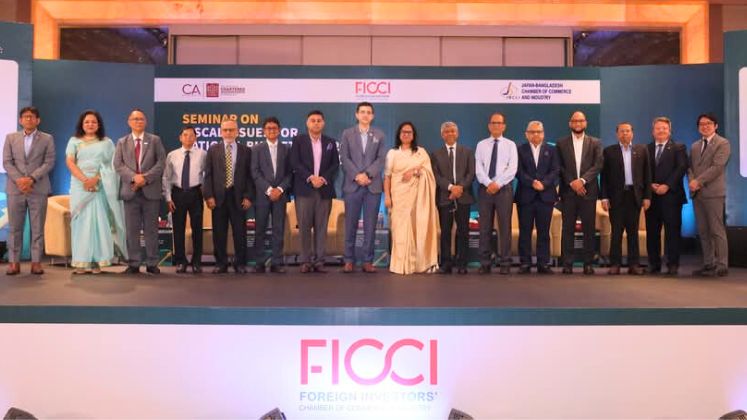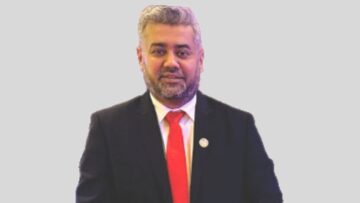
In a strategic effort to foster economic resilience and boost business growth, the Foreign Investors’ Chamber of Commerce & Industry (FICCI), in partnership with the Institute of Chartered Accountants of Bangladesh (ICAB) and the Japan-Bangladesh Chamber of Commerce and Industry (JBCCI), hosted a high-profile seminar titled Fiscal Issues for National Budget 2025-26 to Foster Economic and Business Growth in Dhaka.
The event brought together key policymakers, industry leaders, and economic experts to discuss pressing fiscal challenges and propose pathways for sustainable development. Md. Abdur Rahman Khan FCMA, Secretary of the Internal Resources Division and Chairman of the National Board of Revenue (NBR), attended as the Chief Guest, emphasizing the government’s commitment to a business-friendly fiscal environment.
Addressing the gathering, Dr. M Masrur Reaz, Chairman of Policy Exchange Bangladesh, highlighted the economic hurdles Bangladesh faces amid global uncertainty. He pointed to rising inflation nearing double digits, low foreign direct investment (FDI) at a six-year low, and mounting debt servicing costs that threaten productive investments. Reaz called for urgent reforms in debt management, governance, and banking regulation, stressing that greater transparency in public investments and revitalized capital markets are essential to reduce dependence on bank borrowing and improve investor confidence.
Despite these difficulties, Reaz noted signs of economic resilience, such as a gradual rebound in exports and steady remittance inflows. However, he warned that maintaining this momentum requires consistent policies, supply-side improvements, and comprehensive fiscal reforms to enhance the business climate.
Echoing these concerns, Snehasish Barua FCA, Partner at Snehasish Mahmud & Co., emphasized the need for bold fiscal measures in the upcoming budget. He pointed out Bangladesh’s low tax-to-GDP ratio and called for expanding the tax base, modernizing VAT, and automating tax administration to boost compliance and transparency. Barua stressed that an investment-friendly environment, characterized by streamlined policies, export diversification, and eased business procedures, is vital for attracting both domestic and foreign investors.
The seminar featured a panel discussion with prominent industry figures, including Mohammad Iqbal Chowdhury, CEO of LafargeHolcim Bangladesh; Manabu Sugawara, Bangladesh Country Head at Marubeni Corporation; and JBCCI’s Tareq Rafi Bhuiyan. Discussions centered on improving the business environment, trade facilitation, and attracting foreign investment.
NBR Chairman Abdur Rahman Khan assured stakeholders that most investment-related tax issues have been addressed, and the NBR is actively working to resolve remaining challenges. He stressed the importance of responsible borrowing and announced a significant policy shift: transferring the authority to grant tax exemptions to Parliament. This move aims to enhance transparency, curb undue influence, and align fiscal policies with long-term economic objectives.
ICAB President Maria Howlader FCA underscored the necessity of predictable tax policies, digitalization, and structural reforms to create a more conducive environment for business. She emphasized that inflation control, revenue mobilization, and policy consistency are crucial to restoring investor confidence, both domestically and internationally. She highlighted that global price fluctuations and domestic political developments continue to impact Bangladesh’s economy, with inflation persisting around 9–10 per cent.
FICCI President Zaved Akhtar called for an integrated tax system that enhances revenue collection while ensuring fairness and efficiency. He advocated for rationalizing tax rates, unifying VAT policies, and removing non-tariff barriers to make Bangladesh more competitive ahead of its graduation from Least Developed Country (LDC) status.
The seminar concluded with optimistic remarks from JBCCI President Tareq Rafi Bhuiyan, who praised the government’s focus on improving ease of doing business and strengthening economic ties with Japan. The discussions underscored the need for cohesive fiscal strategies, structural reforms, and policy stability to unlock Bangladesh’s business potential and ensure sustainable economic growth in the coming fiscal year.






